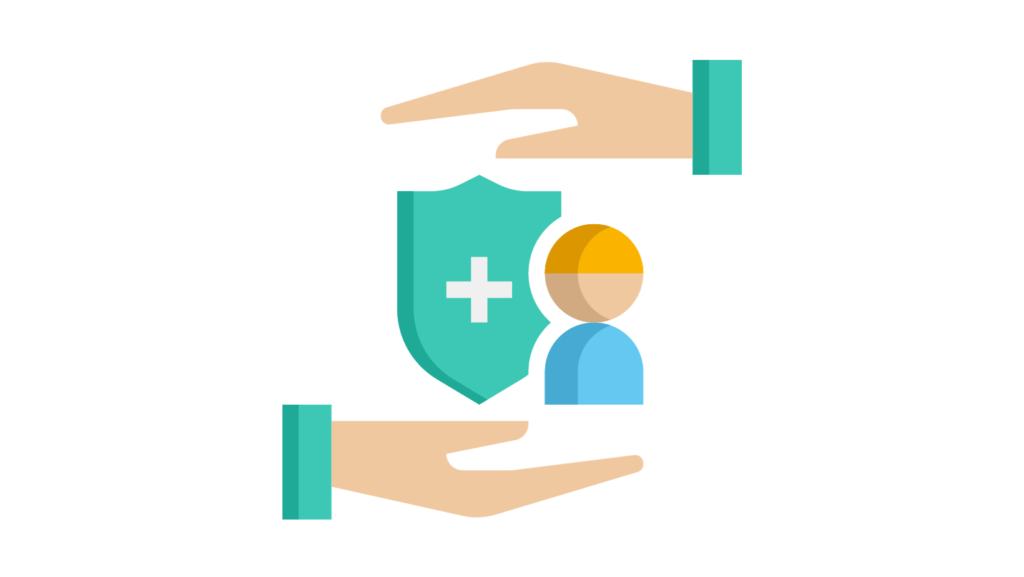If there’s one sector that historically resisted digitalization but was globally compelled into it, it’s healthcare. Despite being an unfortunate necessity, patients worldwide are reaping significant benefits. Particularly as they have been advocating for technology in provider communication for decades.
Revolutionizing Patient-Doctor Interaction: The Impact of Patient Engagement Software
The idea of patient engagement software contrasts with the traditional system where doctors prescribe treatments and patients either accept or disregard the suggestions. This results in dissatisfaction for 3 out of 10 patients. Today, with the patient engagement system, doctors can connect with their patients in real time, anticipate deteriorating conditions, and provide timely guidance.

The cost of not having patient engagement technologies in place
Undeveloped patient engagement strategies can adversely affect the healthcare sector, as can the absence of such programs altogether. Let’s examine the repercussions of lacking patient engagement initiatives.
Lowered patient flows
Diminished patient influx can result when healthcare providers fail to meet the expectations of modern consumers who anticipate personalized services based on their preferences. Patients increasingly seek healthcare clinics that leverage technology in their communication. This constitutes 60% of the demographic, thereby underscoring the importance of aligning healthcare services with evolving consumer expectations.
Less preferable patient outcomes
Patients who do not actively participate in communication with their healthcare providers are at a higher risk of non-compliance with prescribed treatments. Recent studies reveal that over 30% of prescribed medications remain unfilled. And more than 50% of individuals with chronic illnesses struggle to adhere to recommended medication regimens, posing potentially severe consequences.
Increasing medical expenses
Lack of patient engagement in managing their health can significantly affect healthcare expenses. Without a digital patient engagement platform, individuals often neglect routine check-ups, overlooking early signs of medical issues until they reach a critical stage. This delay results in more costly treatments when addressing the problem at an advanced stage.
The benefits of patient engagement in healthcare
Patient engagement in healthcare is similar to customer engagement in other industries. This encompasses various processes, tools, and technologies that assist healthcare providers in making informed decisions. Let’s explore the manifold advantages of employing patient engagement techniques.
Benefits of patient engagement technology for healthcare systems
Enhanced patient outcomes – Improved patient results stem from the integration of efficient patient engagement software, fostering smooth collaboration and communication between healthcare service providers and patients. This synergy leads to overall enhanced health and well-being.
Elevated revenue –
Implementing effective patient engagement strategies enables individuals to undergo regular medical tests, consult with healthcare professionals more frequently, and detect issues at earlier stages. Collectively, these factors contribute to increased business revenue.
Enhanced patient retention rate –
Top-notch patient engagement software includes features that simplify the tracking of medical data, facilitate real-time communication with healthcare providers, and promote active patient involvement, thereby offering elements that streamline patient retention.
Assured adherence to healthcare regulations –
Patient engagement platforms tailored for primary care offices are crafted with global healthcare regulatory compliance in consideration, rendering them suitable for operations worldwide.
Benefits of patient engagement apps for patients
Lowered emergency case visits –
Patients who closely collaborate with their healthcare providers take proactive measures to identify warning signs well in advance, thereby reducing the frequency of emergency room visits.
Reduced healthcare costs –
Patient engagement strategies are designed to facilitate easy communication between patients and doctors, particularly at the early stages of illness detection, resulting in decreased healthcare expenses over time.
Increased participation in medical decisions –
By actively monitoring their health and engaging with healthcare professionals, patients can more effectively participate in their medical journey.
24*7 access to doctors –
Healthcare patient engagement ensures effortless access for patients to connect with their doctors at any time, 24*7.
The must-have features of patient experience software
A powerful patient engagement software comprises features that not only enhance accessibility for both patients and doctors but also establish seamless connections between them. Here are some commonly encountered features of a patient engagement solution.
Digital patient intake forms
In contemporary patient portals, the capability for patients to digitally complete the registration process is considered essential. This functionality not only eliminates the requirement for traditional in-office paper and clipboard registrations but also significantly reduces patient wait times.
Uploading Medical History
A major advantage of patient engagement software is its inclusion of an Electronic Health Record (EHR) feature, enabling patients to securely upload and share their medical history with healthcare providers. This streamlined process facilitates healthcare providers in making well-informed decisions.
Digital Payments
Incorporating online payment methods into the patient portal simplifies real-time payment transactions for patients and provides hospital administrators with a secure platform to maintain financial records.
Automated Lab Test Reports
Digital patient engagement platforms offer the convenience of automatically sending lab test reports to patients, eliminating the need for patients to follow up with clinics and saving valuable time.
Health Record Viewing
Both patient and doctor portals should include a feature that allows the viewing of medical records. This feature should enable secure sharing with other medical practitioners and support the utilization of records for health claims.
The best patient engagement technologies
Developing software in the engineering domain that extends the scope of patient engagement in healthcare demands a blend of various trending technologies. Although it can be challenging to monitor these technologies individually, collaborating with a healthcare software development services provider facilitates the simplification of the process for constructing patient engagement programs.
Types of Patient Engagement Systems for Hospitals
When venturing into the healthcare patient engagement market, you generally have three choices to consider – off-the-shelf solutions, content management systems, and fully customized solutions.
Off-the-shelf patient engagement software
Various software options provide patient engagement solutions in healthcare. Hospitals can choose from multiple pricing models and feature sets. In terms of monetization, some software offers predefined features and subscriptions, while others provide the flexibility for hospitals to select the features they require.
Best suited for medical practices that:
- Small team with a maximum of 10 doctors
- Limited initial funds available
- Adapt existing internal processes for integration with modern solutions
- Intends to utilize the patient engagement system as a standalone software without integration with other applications.
Content Management System (CMS)
These software solutions are typically tailored to existing CMS platforms such as WordPress or Wix. They empower the creation of platforms featuring functions like patient registration, doctors’ appointment scheduling, patient-provider communications, and integration with Electronic Medical Records (EMR)/Electronic Health Records (EHR).
While these platforms may seem like a cost-effective solution, the monthly plans often do not encompass maintenance, third-party plugins, and extensions.
Ideal for healthcare firms that:
- Require a rapid, short-term solution
- Have no intentions of expanding
Tailor-Made Patient Engagement Solutions
These software solutions are meticulously crafted for your healthcare organization, placing your requirements and internal processes at the forefront. With this approach, you can customize the software without disrupting your existing processes.
Furthermore, unlike CMS-based solutions, these are developed from the ground up, providing you the flexibility to incorporate technologies such as Blockchain, AI, IoT, and more into the software. Collaborating with specialized patient engagement software companies like Digiatto IT Services allows you to design and integrate these processes seamlessly with the right third-party systems.
Ideal for medical organizations that:
- Offer a diverse array of services
- Intend to expand their service offerings
- Can allocate initial funds
- Possess complex workflows that require adaptation
- Require integration of patient engagement software into their existing systems
How can Digiatto IT Services be your partner in success?
The significance of patient engagement software in healthcare has rapidly increased, particularly as patients actively participate in medical decisions and seek digital accessibility. When developed effectively, these software solutions encompass third-party integrations, address various patient touchpoints, exhibit high scalability, prioritize security, and comply with regulatory standards to yield optimal industry-wide outcomes.
At Digiatto IT Services, we have assisted numerous medical practitioners in understanding the importance of patient engagement by delivering innovative, scalable, and highly accessible solutions.
Contact us today to establish your patient engagement system.



Pingback: Legacy Systems in Healthcare - Health SaaS Pro
Pingback: Cloud Computing in Healthcare Industry - HealthSaaSPro